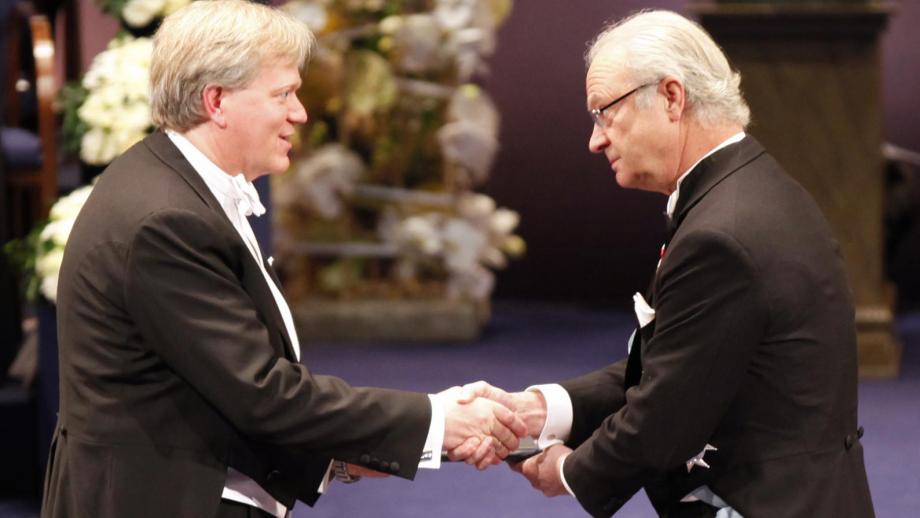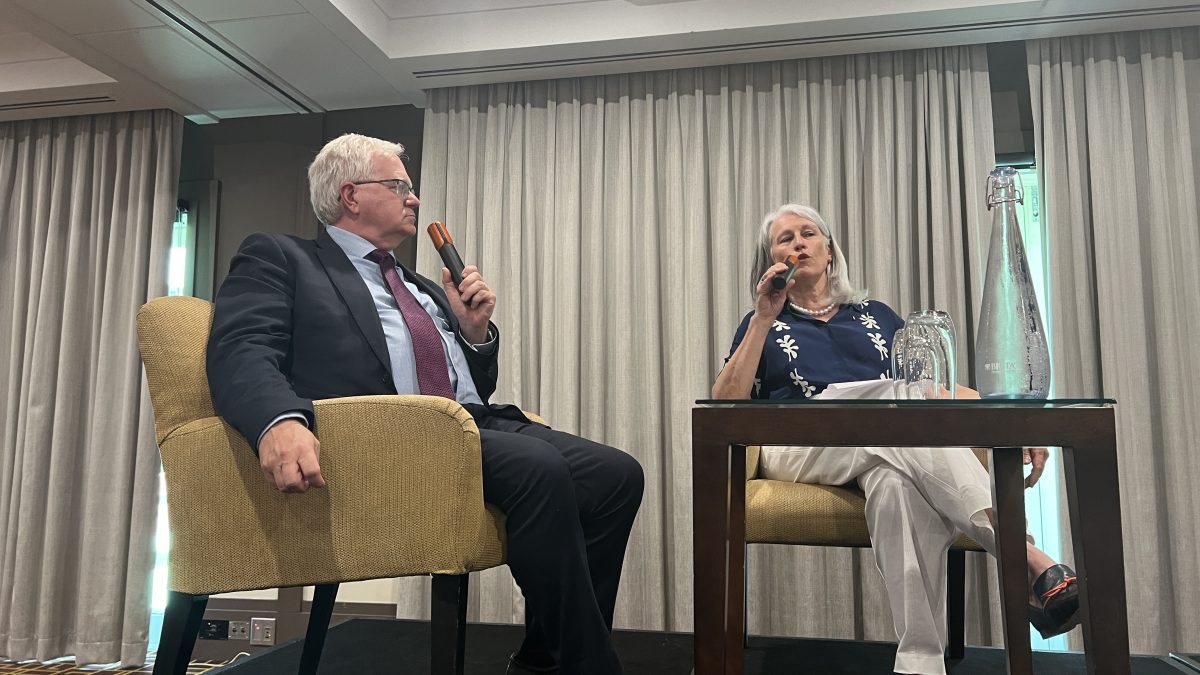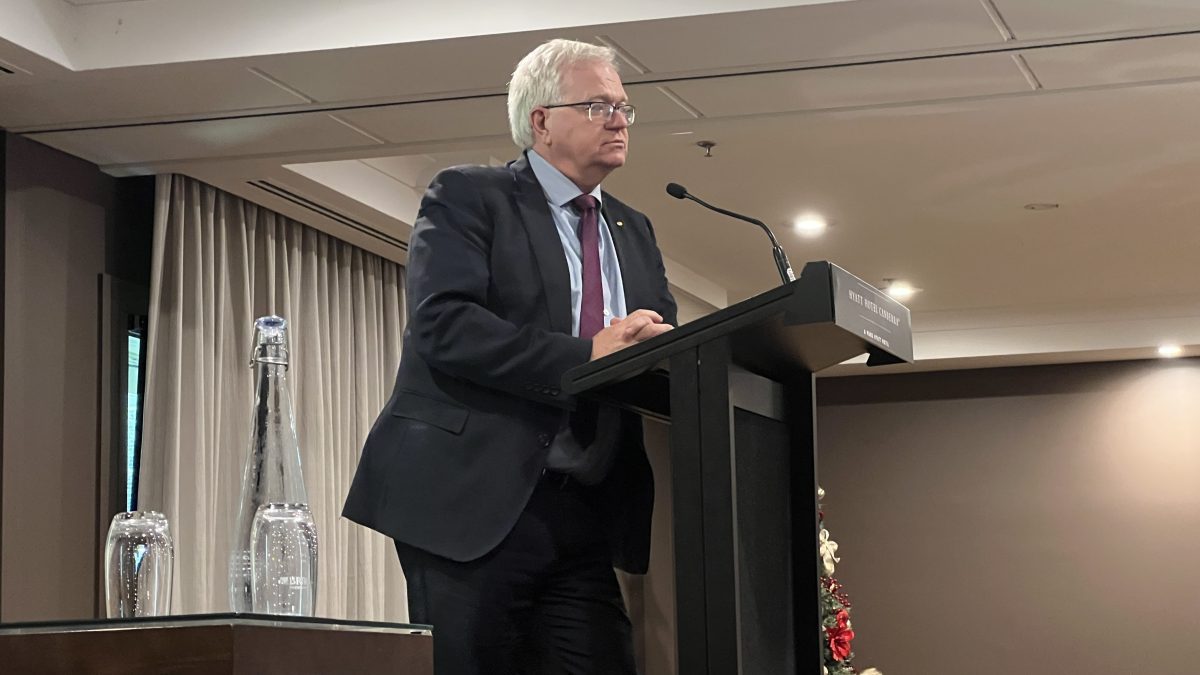
Professor Brian Schmidt received the 2011 Nobel Prize for Physics and began his tenure as ANU Vice-Chancellor in 2016. Photo: Orasisfoto – The Nobel Foundation.
In one of his final speeches as vice-chancellor of the Australian National University, Professor Brian Schmidt has warned Australia must be on the front foot to ensure the US alliance survives potential political storms ahead.
Professor Schmidt and Member for Fenner Andrew Leigh addressed a room full of industry professionals, academics and politicians at the American Chamber of Commerce (AmCham), discussing the future of the American Dream ahead of a deeply divisive 2024 election.
While Dr Leigh – who has studied in the US – was broadly optimistic about the can-do attitude of ordinary Americans, Professor Schmidt warned that a return to isolationism was a distinct possibility as US standards of living decline.
“I moved here in 1994. Then, the average life span of Americans and Australians was the same. Now they’ve gone two years back, while Australia has gone two years ahead,” he said.
“The US has always led from the front, but can they keep going?”
But, Professor Schmidt said, America’s control of world financial systems remains inescapable and a return to more inward-facing policies could have dire results for multiple allies, including Australia.
“If I could provide AmCham with any advice, I would say flood the US with business, research and opportunities to keep them open,” he said.
The former physicist and astronomer said that while Donald Trump’s movements are difficult to predict, the US offers far more dynamism, security and opportunity than a safe bet on Europe’s values. Australia has been a global free trade leader since the 1980s and remains strongly embedded in the US consciousness as a close friend and ally of choice.
While the China relationship is difficult for Australia to navigate, Professor Schmidt said both Trump and Chinese Premier Xi Jinping are essentially transactional politicians, mitigating the risk of Australia being caught in the middle of a superpower conflict.

Professor Schmidt discussed the impact of AI on public trust and government institutions with Region‘s Genevieve Jacobs. Photo: James Day.
The Nobel laureate also addressed the rise of artificial intelligence and the challenges it poses for democracy and trust in government systems.
Professor Schmidt advocates for a National Investment Fund to keep Australia ahead of the curve for technological and innovation challenges. While Australia has an excellent record for innovation, he noted that rarely translates to development, given the paucity of local venture capital.

Professor Brian Schmidt: “The US has always led from the front, but can they keep going?” Photo: James Day.
“I find it incredibly frustrating that clever organisations we have are selling to the US and we’re buying it back from them. Venture capitalists don’t give that million-dollar funding in Australia, but they do in the US,” he said.
“I’ve described the issue to the Prime Minister and Science Minister, that we have a really shallow pool of money for things that are risky.
“We need to work with economists to build something that isn’t just getting a lowest common denominator deal that misses out on more lucrative but risky opportunities.”
Professor Schmidt said industry would not sort out the issue on its own.
“The focus should be on education so that it will hopefully allow everyone to rise rather than steepen economic inequality,” he said.
Original Article published by James Day on Riotact.


